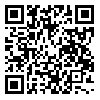BibTeX | RIS | EndNote | Medlars | ProCite | Reference Manager | RefWorks
Send citation to:
URL: http://yafte.lums.ac.ir/article-1-2316-en.html
Background: Behavioral disorders in preschool children causes a lot of problems. They mainly use medical treatment to solve this problem. But this research looks for a non-pharmacological alternative through the educational games.
Materials and Methods: Data were gathered through randomized controlled trial method by using unequal control group design with pre-post test plan. The sample included 46 six years old girls. They were slected from a kindergarten in Boroujerd city, and through the creation of a random sequence divided to two groups, 24 as experimental and 22 as control groups. The instrument was (PKBS) observation form in behavior disorders status.Data were analyzed by independent and dependent T tests .
Results: The results showed that there is a significant difference between the mean of the pre-test and post-test in internal (p≥0.0001) and external behavioral disorders (p≥0.0001) of preschool girls. Independent T test showed that there is significant difference between post-test of internal (p≥0.05) and external (p≥0.01) behavioral disorders of experimental and control groups to benefit of experimental group. There is no significant difference between pre-test and post-test of internal (p≥0.69) and external (p≥0.23) behavioral disorders in the control group.
Conclusion: According to the results the educational games showed significant effect on the improvement of behavioral disorder of preschool girls, therefore, it is approprate to apply the games as a non-pharmacological program in the relevant centers for children with behavioral disorders.
Received: 2016/10/9 | Accepted: 2017/05/9 | Published: 2018/02/17
| Rights and permissions | |
 |
This work is licensed under a Creative Commons Attribution-NonCommercial 4.0 International License. |






